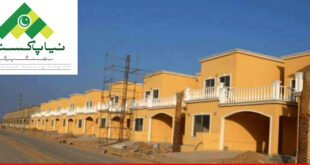Pakistan has seen a surge in imported steel products including steel billets, bars, wire rods and flat sheets. Approximately 250,000 tons of steel billets, bars and wire rods were imported in 2014, which posted a 40% increase over the quantity imported in 2013. These steel products are being used in critical applications in the country’s infrastructure such as high-rise buildings, bridges, and dams. Since Pakistan occupies a dangerous position on an earthquake fault-line, it is imperative that we ensure our regulatory bodies are doing their due diligence to ensure sub-standard goods are not making their way into our country’s infrastructure.
Pakistan Standards and Quality Control Authority (PSQCA) is responsible for ensuring that imported products comply with Pakistan Code, which establishes the standards against which imported goods must be tested. Moreover, steel bars are on the mandatory list – which means that all imported steel bars must be tested to ensure compliance to our local standards. Recently, Pakistan Steel Melters Association (PSMA) has rallied the Ministry of Science and Technology to include steel billets in the mandatory list. “Since billets are the raw material that is used to make steel bars, it must be on the mandatory list because sub-standard billets will result in sub-standard bars” mentioned a representative of PSMA.
However, industry experts have claimed that the hundreds and thousands of tons of steel that is being imported is not being tested by PSQCA and Customs authorities to determine whether it is up to international and Pakistan Standards. The goods are released based on ‘Temporary Release Certificates” issued by PSQCA and no further investigation is carried out before such goods are used in the country’s infrastructure. “Shiploads of imported steel billets are coming into the country with no original mill test certificates. For all intensive purposes, such imported steel could be secondary quality but is being sold as primary quality in the local market” mentioned an executive of a re-rolling mill in Karachi.
The other problem lies in the product testing facilities in Pakistan. Members of local construction industry are frustrated as integrity of testing labs have been undermined. “Any sample can be passed at the right price. Samples that are sent for testing are often switched before testing so the consumer doesn’t get the true picture. This is the ground reality.” Once again, our regulatory authorities need to audit such labs and ensure that mal-practices are stopped immediately.
According to the PSQCA Act, exporting manufacturers must get licensed from PSQCA before they can be allowed to export goods into Pakistan. Moreover, the authority must quarantine goods upon arrival at port to test the quality of such goods before allowing its sale in the local market. Giving the example of India’s Bureau of Indian Standards (BIS), the local industry feels the same level of discipline must be applied in Pakistan. According to Steel Mint, an industry specific publication, thousands of tons of steel bars were quarantined at Chennai and Mumbai ports in November – December 2014 due to the imported goods not meeting the quality parameters set out by BIS. Similarly, Pakistani cement manufacturers face strict requirements before they can successfully export to India.
With over Rs6 billion worth of steel products imported between July-December 2014, Pakistani consumers are exposed to a rising level of imported steel products that are being used in our cities and homes. Recent history has shown us the tragic consequences of buildings and bridges collapsing due sub-standard products used in its construction. The regulatory authorities need to take a more pro-active approach to this problem in order to ensure that in today’s global marketplace where there is an oversupply of steel, exporting manufacturers are not selling their sub-standard goods to Pakistani consumers.(AB)
 PAGE Blog Business Weekly Magazine
PAGE Blog Business Weekly Magazine
